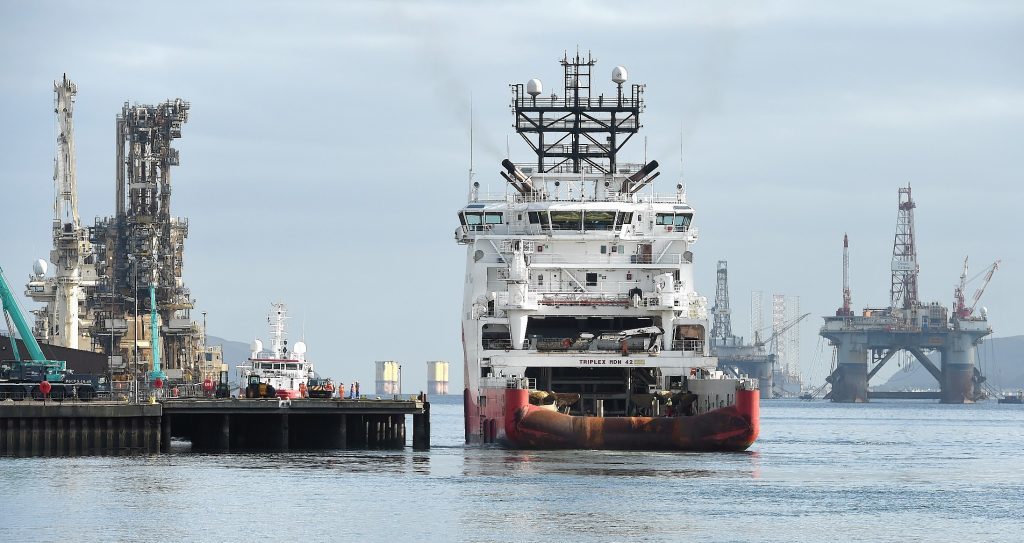
A row has erupted over claims that controversial ship-to-ship oil transfers in the Cromarty Firth are essential to help pay for a £25million cruise ship berth and reception area.
A campaign has been launched against the granting of a licence for the transfers in the firth to the port authority.
Objectors are concerned about pollution in the firth, which is home to a large dolphin population.
Members of the surrounding community councils met with Cromarty Port Authority recently and it was explained to them why the transfers are so important to the port.
Chief executive Bob Buskie told them that the revenue will help grow their cruise ship business with an expansion of the port that will create a new berth and reception area.
Although this is likely to be part grant-in-aid funded, the port will need to borrow money to complete the funding package.
The £500,000 a year from ship to ship transfers is essential to fund the loan interest repayments.
Dr Greg Fullerton, a marine biologist and member of the campaign group Cromarty Rising, said: “Cromarty and District Community Council were told the reason for ship to ship transfers is to pay off the loan interest required for the new cruise ship terminal development which is phase four of the expansion of the port.
“We don’t swallow it at all. If that is how they are generating their income, it paints a picture of a financially over stretched port authority. It really has to beg the question, should a trust port be getting itself into that position?
“There is also the question, how is the port actually going to attract the work? There is no guarantee that they will get that £500,000 worth of business per annum. It is a fairly rickety model to base your future on.”
Mr Buskie said: “As we’ve stated in the recent ship to ship update document, as a trust, and in line with Transport Scotland’s guidance for good governance, we have a duty to the Scottish Government and the national economy to maximise the asset of the Cromarty Firth.
“In order to support investments such as the proposed new cruise berth, the port needs to demonstrate stable and secure sources of revenue long into the future. The loss of oil tanker
activity reduces the amount the port can borrow for such projects.”
Recommended for you
